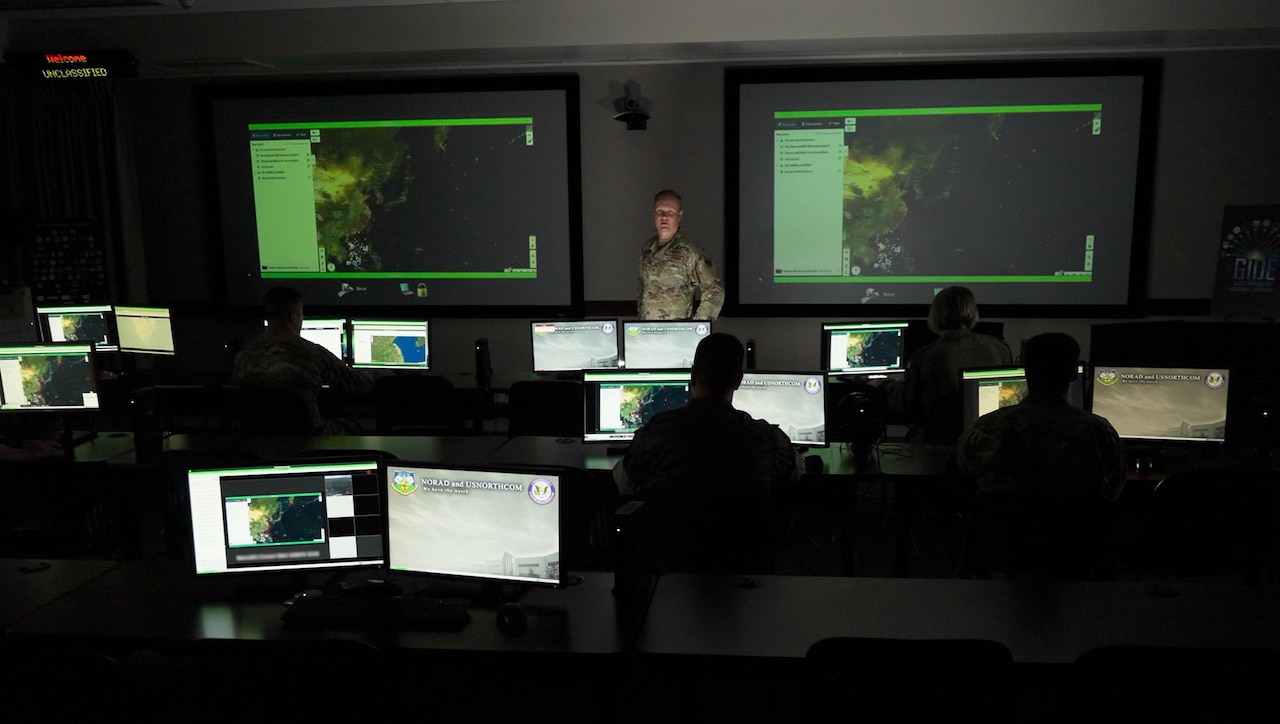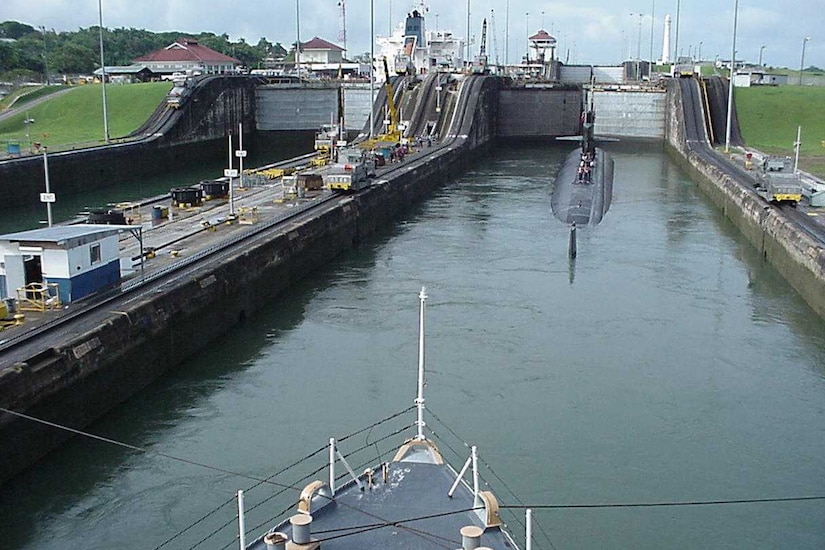DAVID VERGUN

Air Force Gen. Glen D. VanHerck, commander of North American Aerospace Defense Command and U.S. Northern Command, today briefed the news media on Global Information Dominance Experiment 3, which took place July 8-15.
The experiment focused on a peer competitor and centered a lot on contested logistics in scenarios where lines of communication — such as the Panama Canal — were challenged, he said without going into specifics since much of the experiment is classified.
GIDE 3 enabled the department to rapidly collaborate with all 11 combatant commands and across the department to see pertinent data and information, using a variety of sensors, artificial intelligence and machine learning.
GIDE 3 tested the Defense Department's domain awareness, integrated deterrence, information dominance and decision-making superiority, he said.
"Integrated deterrence is about using the right mix of technology, operational concepts and capabilities, all woven together in a networked way so that it is credible, flexible and formidable, [and that it] will give any adversary pause, especially to think about attacking our homeland," VanHerck said.
The experiment also tested how the department uses information and data to increase decision space for leaders from the tactical level to the strategic level, he added.
Another goal of the experiment, he said, is creating global integration, shifting the department away from today's regionally focused plans and strategies.
The experiment also focuses on finding ways to change how the department executes force management and force design paradigms, as well as budgetary and acquisition processes, he added.
"We're shifting our focus away from pure defeat mechanisms for homeland defense toward earlier 'deter and deny' actions," he said. VanHerck also added that the experiment spurred the department to find ways to enable faster decisions and provide more options by making new technologies more accessible.
"Right now, the threats we face and the pace of change in the geostrategic environment continues to advance at really alarming rates. We've entered an era of new and renewed strategic competition, and this time we're facing two peer competitors — both nuclear armed — that are competing against us on a daily basis," he said.
"We must outpace our competitors by accelerating our own efforts to transform our culture, including factoring in homeland defense into every strategy, every plan, force management, force design decision, as well as aspects of acquisition and budget," he said.


No comments:
Post a Comment